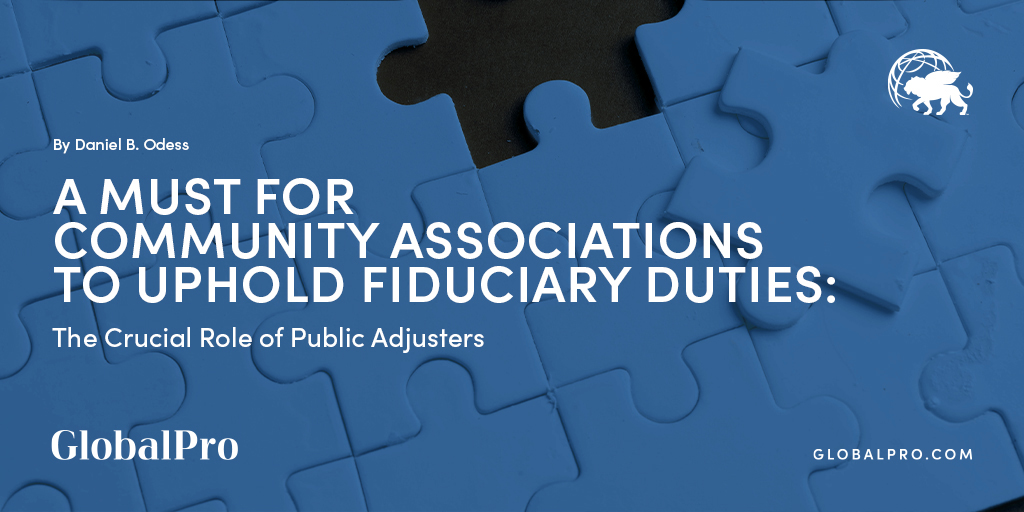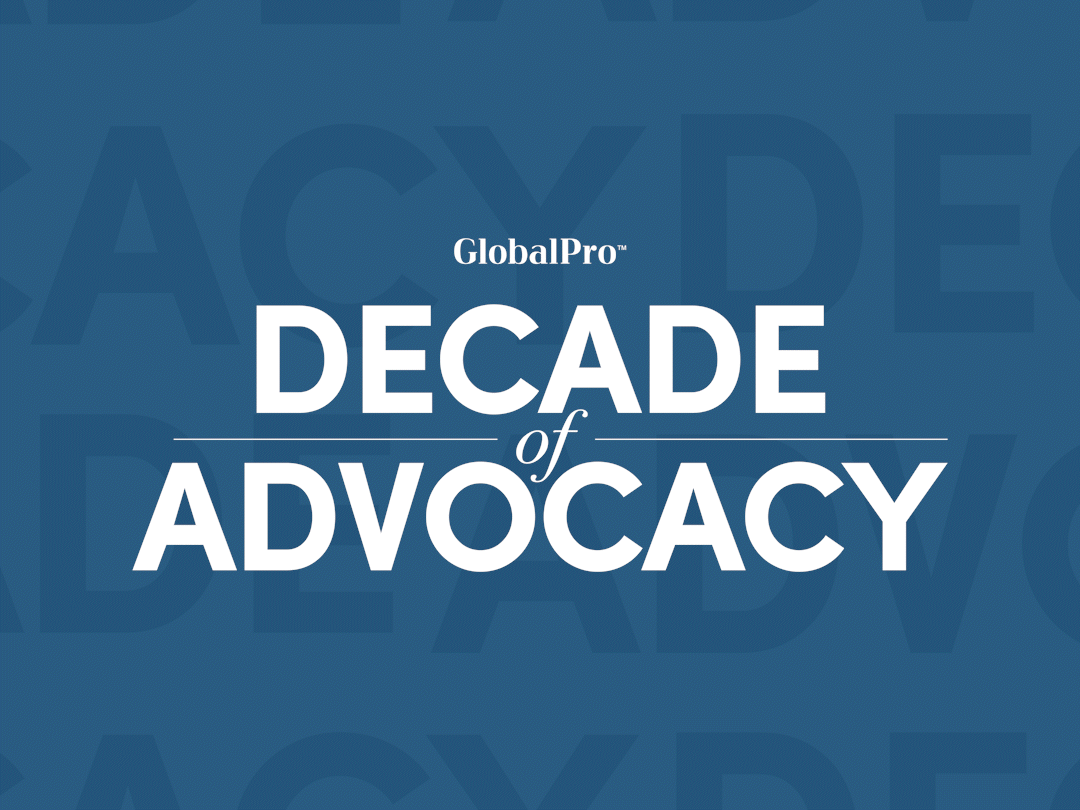A Must for Community Associations to Uphold Fiduciary Duties: The Crucial Role of Public Adjusters
By Daniel B. Odess, CEO & Founder of GlobalPro

In the wake of recent natural disasters and the evolving landscape of insurance legislation, it’s imperative for property owners, community association boards, and business owners to reassess how they approach insurance claims. This is especially true for community association boards, where the responsibility to protect the financial interests of their communities is paramount. The recent misleading data about lawsuits leading to anti-consumer insurance legislation, combined with the alarming delays and unethical practices in claims processing post-Hurricane Ian, underscore the need for professional guidance right from the onset of a loss. In light of recent events and discoveries in the insurance industry, it’s time to ask a critical question: “As a community association board, are you fulfilling your fiduciary obligations without the representation by a public adjuster in property insurance claims?”
1. Upholding Fiduciary Duties:
Community association boards are entrusted with the responsibility of safeguarding their community’s financial interests. The revelations of delayed and unfairly reduced claims post-Hurricane Ian, and the broader implications of anti-consumer insurance legislation, suggest a landscape fraught with challenges. If a board does not consider the expertise of a public adjuster, it might inadvertently breach its fiduciary duties. How can you be sure you are protecting your association’s financial interests if you navigate these complex waters without representation and expert guidance?
2. The Broker’s Role – A Misconception:
It’s a common misconception that your insurance broker represents your interests in a claim. In reality, their role is primarily to place your insurance and not to advocate on your behalf during a claim. This distinction is crucial in understanding why a public adjuster’s role is indispensable.
3. Expert Advocacy Against Unfair Practices:
The alarming trend of insurers reducing claims, as witnessed in the aftermath of Hurricane Ian, underscores the need for specialized advocacy. A public adjuster serves as a professional ally, equipped to counter unfair practices and ensure claims are fairly evaluated and compensated.
4. The Parallel Between Construction Management and Claim Handling:
Just as an association board would hire a licensed professional to manage a construction project, the need for a licensed public adjuster to handle insurance claims is equally essential. Both scenarios involve intricate processes that require specialized knowledge and expertise. An insurance claim, at its core, is ultimately a construction project aimed at restoring damaged property. However, it is not lawful for a construction professional to represent you in an insurance claim unless they are a licensed public adjuster with no interest in the project. Overlooking this parallel can lead to mismanaged claims, much like a poorly handled construction project can result in structural and financial setbacks.
5. Comprehensive Claim Preparation:
In the face of complex insurance policies and potential conflicts of interest with insurer-appointed adjusters, a public adjuster brings an unbiased, expert perspective. They ensure that every aspect of the claim is thoroughly assessed, leaving no stone unturned in claiming what is rightfully owed.
6. Professional Support and Efficiency:
Dealing with insurance claims can be a labyrinthine process, laden with potential pitfalls. A public adjuster navigates this process efficiently, providing peace of mind and allowing the board to focus on its primary responsibilities.
7. Preventing Financial Shortfalls:
The financial stability of a community association can be significantly impacted by how insurance claims are handled. Public adjusters work diligently to prevent the kind of financial shortfalls that can arise from underpaid claims, which are not only detrimental to the immediate recovery but can also have long-term financial repercussions for the community.
In conclusion, in an insurance landscape marred by skewed data, anti-consumer legislation, and a trend of unfair claim reductions, the need for a public adjuster is more pronounced than ever, particularly for community association boards. By engaging a public adjuster, boards are taking a proactive step in fulfilling their fiduciary duties, ensuring that they are truly protecting the financial interests of their communities. Remember, in the intricate dance of insurance claims, having the right partner can make all the difference in leading your community association to a secure financial future.


